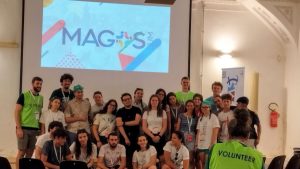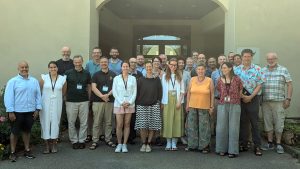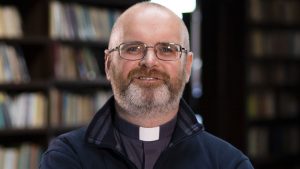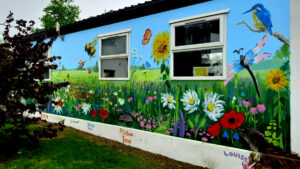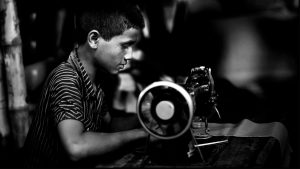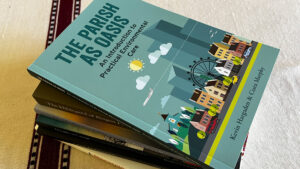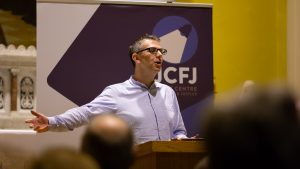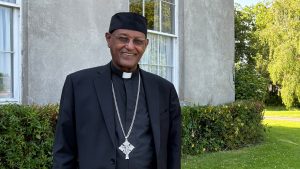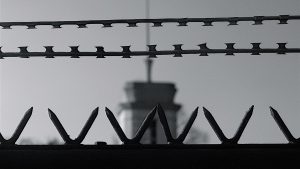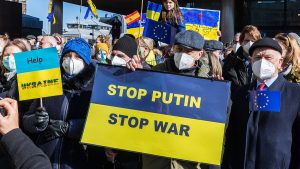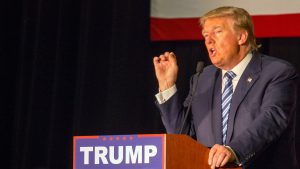Catholic Social Teaching and a world in crisis

Dr Kevin Hargaden, Director of the Jesuit Centre for Faith and Justice, was one of a group of international theologians, ethicists, political scientists, educators, and practitioners who gathered at St. Virgil Conference Centre in Salzburg » from June 1–3, 2025. There they explored how Catholic Social Tradition (CST) can meaningfully engage the contemporary crises facing democracies worldwide.
The conference was organized by the University of Notre Dame’s Institute for Social Concerns » and formed part of the SPIRE initiative », an effort to connect scholars and practitioners in order to harness CST as a catalyst for global social transformation. In a context of democratic backsliding and rising authoritarianism, the gathering opened with reflections on how CST might be a resource for renewing democratic imagination and participation.
The first full day began with words of welcome and an exploration of religious nationalism in Western Europe, led by the acclaimed Belgian theologian, Ellen Van Stichel ». According to Kevin Hargaden, Van Stitchel’s talk elicited “a fascinating response from the Swiss public intellectual Claudia Brühwiler ».This session set the tone by confronting how theological traditions can be distorted to support anti-democratic tendencies.”
The conference then moved to broader global concerns in a session titled CST and the Polycrisis, with Julie Clague » and Grégoire Catta SJ » highlighting the multiple, overlapping challenges – climate, migration, inequality – that demand a renewed commitment to the common good. This was followed by a critical discussion on populism and social trust, led by Michelle Becka » and Clemens Sedmak » and a provocative session on fake news and the post-truth world, where Kevin Hargaden explored the epistemological and moral challenges digital culture poses to democratic societies, in dialogue with the work of the scholar of peace studies Evelyne Tauchnitz ».
Tuesday’s sessions deepened the theological inquiry, according to Kevin. They began with Redeeming Politics, a reflection on CST’s potential to offer restorative practices in democratic life, led by Julia Blanc », a sociologist and theologian who pondered the place of “utopia” in our democratic deliberations. Linda Kreuzer », an Austrian PhD student, considered whether institutions are capable of ‘care’, and what difference that might make when so many people feel alienated in our societies?
The final plenary gave participants a chance to gather their thoughts, share lingering questions, and think aloud about where this shared work might go next. An immediate possibility, says Kevin, is a shared research project on the relevance of the concept of parrhesia » for CST, the university, and democracy.
Later that afternoon, the group visited the Obersalzberg Documentation Center ». “With Salzburg at our doorstep, we could have done something concerning Mozart or the Sound of Music, says Kevin, adding, “but this was much more appropriate; a sobering encounter with the history of Nazi rule that brought home just how vulnerable democracy can be, and why the Catholic Social Tradition has something vital to offer in its defence.”
Speaking of his own engagement, Kevin explained that by their nature, these interdisciplinary conferences can be strange beasts. “You gather two dozen experts in a room, but while their areas of study speak to each other, they do not exactly overlap. It is easy to end up in a situation where everyone dumbs their work down a level to ensure they are understood and then nothing rises to the top. But this was an unusually well organised gathering, with time for careful shared discussion and serious wrestling with the ways in which the historic strengths of European liberal democracy have become vulnerabilities.”
He continued, “For my part, the paper I tested concerns how the digital ecology that has emerged in the last generation is one of the under-recognised causes of democratic decline and through my research I demonstrated that the Catholic church has both precedent for intervening in the conversation and a vast array of relevant contributions to hand.” His paper will likely appear in a future edition of The Journal of Catholic Social Thought ».


